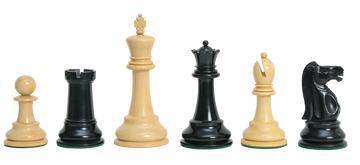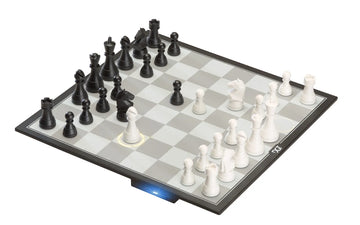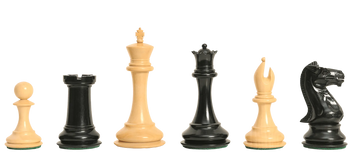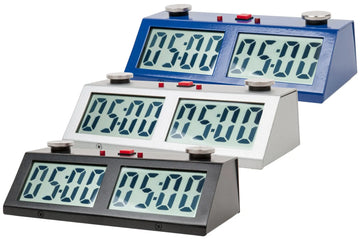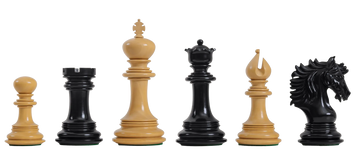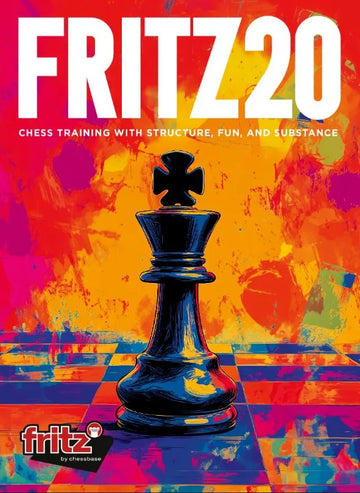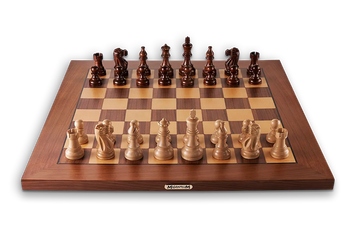Is Chess a Sport?
You're wondering: Is chess a sport?
When we usually think of sports, we imagine endurance, competition, skill, and, occasionally, teamwork. But does chess fit into this definition?
The short answer is yes! Here's why the intellectual battle is actually a sport.

What is a Sport?
To consider whether chess is a sport, we must first ask ourselves what a sport is in the first place.
Sports are physical activities that foster competition between people.
It's hard to land on a hard definition for the word "sport." Ultimately, a sport is a category that activities generally fall into. It's not a hard truth. Here are some factors that make an activity a sport:
- It's organized. When an organization or institutional structure backs a game, it is more likely to be considered a sport.
- People participate in it like a sport. Coaches, officials, administrators, sponsors, and fans contribute to a sporting environment.
- It's recreational. People can participate in sports for fun, as well as for health and well-being.
- It's physical. Sports call for the body to expend energy, usually to produce bodily movement.
There are other aspects of sports that some people might consider hard rules, but these are the most common.
Why is Chess a Sport?
By these main factors, chess fits into the category of sport.
- It's organized. The International Olympic Committee (IOC), FIDE, USCF, and hundreds of national bodies recognize chess as a sport and set regulatory standards for tournaments.
- People participate in it like a sport. In the chess world, we too have coaches, arbiters, tournament directors, and sponsors. And we definitely have fans.
- It's recreational. People participate in chess for social experiences. They can also play chess to improve cognitive health and focus.
- It's physical. While sitting down and playing chess might not look demanding, looks are deceiving. We'll discuss just how physically demanding chess can get later.

So chess clearly fits into the category of sport by these categories.
Chess as a Physical Activity: Karpov vs Kasparov
But how physical is chess, really? In the 1980s, the World Chess Championship had to be called off due to concerns for the well-being of the competitors.
In 1984 in Moscow, a young Garry Kasparov faced off against Anatoly Karpov for the World Championship title. This format was an ongoing battle for the first play to reach six wins. In this format, draws didn't count.

Karpov quickly gained a threatening lead, winning 4 out of the first ten games and drawing the rest. But the draws continued, and Karpov would fail to secure another victory until game 27. At this point, Kasparov wasn't even on the proverbial board.
But then, at game 32, Kasparov secured his first victory. After over a dozen more draws, Kasparov won games 47 and 48, reaching a score of 5-3.
At this point, the 48 games had taken place over five months. And still, neither competitor had achieved six wins. But Karpov, who was already small in frame at the start of the championship, lost 22 pounds. "He looked like death," recalled GM Maurice Ashley of his condition.
At this point, FIDE President Florencio Camponmanes called the match off, making Karpov the de facto winner. Both players desired to continue playing. A controversial aspect of this decision was that it followed two consecutive victories by Kasparov.
Perhaps if the duo kept playing, Kasparov would have eventually secured six victories. But after months of draws, would Kasparov have defeated his opponent by beating him through chess skill? Or would Karpov have crippled under the physical challenge of six months of tournament games?
The match was so grueling that never again did we return to the deceptively unforgiving format.
And the two players would continue their rivalry beyond this moment.
The Grandmaster Diet
Karpov is not the only chess player to have slimmed down over the board. In 2004, Rustam Kasimdzhanov won the World Championship after a six-game match, but lost 17 pounds. Another 2018 study found that Mikhail Antipov, a 21 year old Russian GM, burned 560 calories in two hours of playing chess. For context, this is the same amount of calories former number 1 tennis player Roger Federer would burn in an hour of tennis.
A Stanford University study found that a chess player can burn up to 6,000 calories a day while playing in a tournament. Players' breathing rates triple during competition, and they also experience elevated blood pressure and muscle contractions. The study found that grandmasters' stress responses to chess are similar to those of elite athletes.
And they can lose 2 pounds in a day, reaching 10-12 pounds of weight loss after a 10-day tournament.
In addition to the stress caused by prolonged concentration alone, poor sleep can also cause weight loss. Operating on less sleep forces you to use more energy to stay awake during chess. Plus, grandmasters who dream about chess may actually exhaust themselves in their dreams.
Vishwanathan "Vishy" Anand deliberately does two hours of cardio each night in an attempt to tire himself out so he doesn't dream about chess.
Magnus Carlsen has done everything from cutting back on orange juice to working out for hours, hiring a personal chef, chewing gum to boost brain function, and sitting upright during tournaments to maximize his already dominant results as the greatest player of all time.
The Breakfast of Champions: Fabiano Caruana's Daily Routine
Once ranked #2 in the world, Fabiano Caruana takes diet and exercise as seriously as a physical athlete.
Caruana, whose base weight is 135 at 5 foot 6 inches, usually drops to 120 to 125 pounds. He gets "mildly scared" when he weighs himself after tournaments and sees he's below 120 pounds.

So, what is Caruana's approach to keeping his health together? Caruana works out for hours in a day.
In a single day, Caruana may schedule a 5-mile run, an hour of tennis, a half hour of basketball, and at least an hour of swimming.
He also eats a well-balanced diet. For breakfast, he may have two eggs, cured fish, oatmeal, and fruit. This meal combines protein, fish oil, grains, and plant-based foods.
Chess, the Sport that Never Made it to the Olympics
Okay, so chess is a sport, and a physically demanding one at that. Will we ever see it at the Olympics?
Sadly, no. While the International Olympic Committee has recognized chess as a sport, there are a number of barriers that stop chess from being a sport:
- Doping regulations are unclear.
- There is a tendency to exclude board games from the Olympics.
- The Olympics focus on physical talents rather than mental.
It is admittedly a slap in the face that break dancing made the cut in the most recent Summer Olympics. But we did get something substantial by trying to make chess a part of the Olympics.
The International Chess Federation (FIDE) and the Chess Olympiads were both established in an attempt to incorporate chess into the Olympic Games. FIDE was formed on the closing day of the first-ever Chess Olympiad. The event was unofficial and took place in Paris, where the Olympics were at the time.
The International Olympic Committee (IOC) recognizes chess as a sport and FIDE as an official federation. Still, we must sit out the Olympics while sports like solo synchronized swimming and mud fighting have had their chance.
Final thoughts: Treat Chess like a Sport
We've explored why chess is a sport. But even if you disagree, you should still treat chess like a sport if you want to improve your chess.
This means going beyond just chess training. By regularly exercising and eating a well-balanced diet, you can give your body and brain the power to perform in a game.
Yes, chess is a sport. The International Olympic Committee officially recognizes chess as a sport. While some may disagree, at the heart of the matter, chess demonstrates skill, fosters competition, and requires strength in various forms.
Oddly enough, while the IOC sees chess as a sport, chess is not officially part of the Olympics. There are many reasons why chess didn't make the cut.
While having the right study plan is crucial to improving your chess, so is your physical well-being. You don't have to be in peak physical condition to play. Still, improving your diet and exercise routine could be a secret weapon in transforming your game. Plus, it's good for your overall health!

